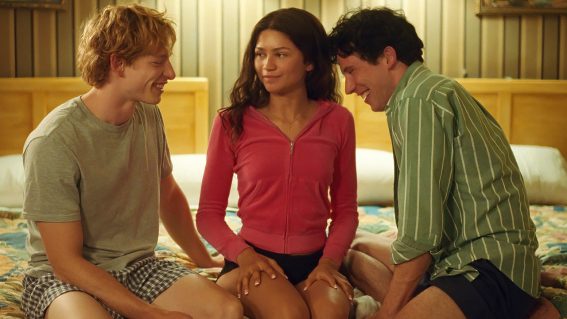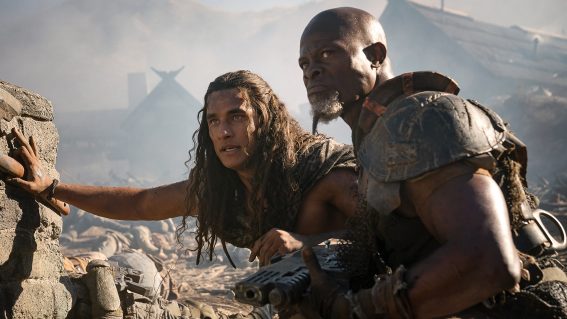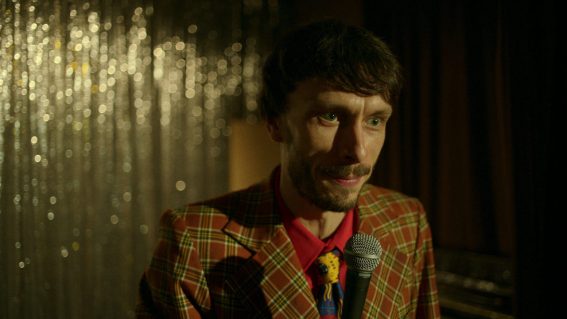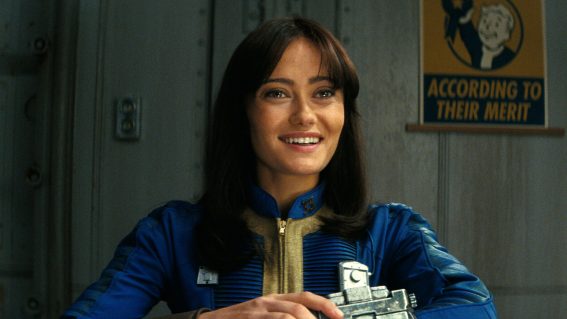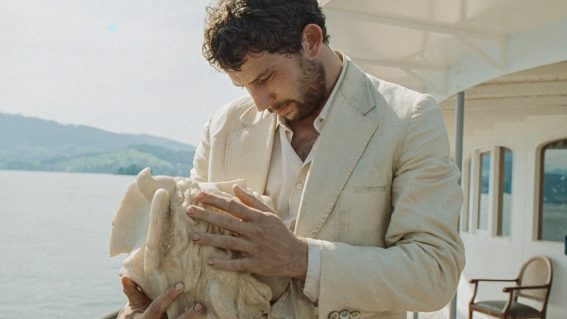Galveston is a beautifully made crime drama with soul and pathos

A hitman with a terminal illness (Ben Foster) hits the road with a sex worker (Elle Fanning) in Galveston, a crime drama adapted from a novel by True Detective author Nic Pizzolatto. It is an exciting and deeply compelling film that packs an emotional punch, writes Luke Buckmaster.
Director Mélanie Laurent’s sumptuously shot and unexpectedly tender crime drama Galveston opens with hitman protagonist Roy (Ben Foster) narrowly avoiding his own death after his boss arranges to whack him – a common occupational hazard for mob enforcers. In typical noir fashion this story, adapted from a novel by True Detective creator Nic Pizzolatto, begins with a girl: the sex worker Raquel (Elle Fanning), who is entangled in the scene of Roy’s near-death.
The pair take to the road together, desperate to leave their old lives behind. Each however has baggage; there’s a feeling no amount of miles will get them away from what they need to escape. Both characters, painted with affecting performances from Ben Foster and Elle Fanning, rub up against the bald truth about trying to abscond from yourself, brilliantly articulated in a line from the 2009 family film Cloudy With a Chance of Meatballs: “You can’t run away from your own feet.”
Reheating the ‘criminal with a terminal illness’ trope, used too often as a cheap way of trying to extract sympathy for bastards, the director thankfully evolves the message beyond empathy-rousing crudity. The point is not so much that death is imminent for the woebegone crook but that we are all on borrowed time. Galveston‘s narrative trajectory is a kind of reverse Breaking Bad: Breaking Good, if you like, the protagonist confronted with his own mortality then afforded the chance of starting over, with the melancholic condition that his days are numbered.
En route to the titular location, though one senses virtually anywhere would do, the panicked couple pick up Raquel’s three-year-old sister, freeing her from the clutches of an abusive stepfather. Moments on the road comprise a socio-economic travelogue of rural America, comparable to visions of post-GFC fallout that pepper another drama spearheaded by a lead-footed criminal played by Ben Foster: Hell or High Water.

The trio arrive in a shabby hotel not unlike the central location in The Florida Project; I half expected Will Dafoe to trudge out of his office and replace an expired light bulb or hit up a guest for overdue rent. There Roy and Raquel take stock on their lives, understanding that Galveston is a place of transition. And like the audience, uncertain whether they will be offered a redemptive arc or whether the guillotine will finally fall.
Laurent with cinematographer Arnaud Potier conjure a darkly beautiful look: one part gritty verité, two parts moody neo-noir. The lighting is so striking it is almost a character. In one bar-set scene golden light comes down from above the counter in front of Roy and blue haze from a pool table glows from behind, Ben Foster the bridging element between disparate colour zones. Soon later, in a hotel room, a similar colour combination of gold-yellow and electric blue is repeated, as if everything in this world gets stuck to Roy – even ambience.
The drama in Galveston is surprisingly poignant (given the flustered nature of the opening reels) though it feels sandwiched inside the inevitabilities of a bookend genre format. Adapting his own novel, Pizzolatto kickstarts the plot with a burst of action to take the show on the road, then pushes a lot of the genre stuff aside. There’s an assumption it will come back again to Roy and Raquel, in the form of a smackdown from Lady Luck bringing the drama to a head.
I waited uneasily for the past to catch up with them in the expected cliché way, allowing me to complain that the screenwriter was merely flicking switches – depositing and withdrawing confrontation, and dabbling in and out of genre, as if it were a business transaction. How chuffed I was that Laurent and Pizzolatto skillfully circumvent expectations, while catering for those partial to the safety net of a prescribed formula. The film becomes something quite different, and quite special, to standard genre fare.
The vividness of the images in Galveston’s bold final act, and the powerful emotions associated with them, haven’t stopped rolling around my mind. I think about Ben Foster’s heavyhearted face. I think about how the progression of time marches in only one direction. I think about the carefully cropped visions of a storm Laurent inserts to give particular moments atmospheric weight. Perhaps I will be thinking about this film for a while. The accolade “a crime drama with soul and pathos” might sound a little quaint, but it’s on the money.


